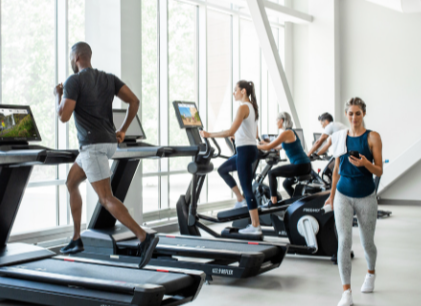Adaptive Fitness Gym: A Welcoming Space for Everyone

An adaptive fitness gym is a specialized facility designed to accommodate individuals of all abilities, particularly those with physical or cognitive disabilities. These gyms prioritize inclusivity, providing a supportive environment where people can pursue their fitness goals regardless of their limitations. Whether someone uses a wheelchair, has mobility challenges, or deals with sensory sensitivities, an adaptive gym ensures that exercise remains accessible, safe, and effective.
What Makes an Adaptive Fitness Gym Unique?
Unlike traditional gyms, adaptive fitness gyms are equipped with modifications that cater specifically to individuals with disabilities. This can include:
- Accessible equipment: Machines and tools that can be used by people with limited mobility or those in wheelchairs.
- Specialized trainers: Professionals trained in adaptive personal training, who understand how to create safe, effective workouts for people with disabilities.
- Inclusive workout spaces: Open, easy-to-navigate layouts with proper space for assistive devices like wheelchairs or walkers.
Key Features of Adaptive Fitness Gyms
- Wheelchair-Accessible Equipment Many adaptive gyms have equipment designed specifically for people who use wheelchairs. This could include upper-body machines that allow the user to remain seated or special resistance equipment that can be adjusted for varying abilities.
- Adaptive Personal Trainers Trained professionals in an adaptive fitness gym have the skills to modify workouts to suit individual needs. These trainers help people of all abilities work toward their fitness goals while ensuring exercises are safe and tailored to their specific conditions.
- Adaptive Classes and Programs An adaptive fitness gym often offers group classes designed for people with disabilities. These programs can include everything from strength training and cardiovascular exercise to flexibility and balance work, all adapted to the abilities of the participants.
- Accessible Facilities Beyond just equipment, the layout of adaptive fitness gyms takes into account the needs of those with mobility challenges. This includes wide pathways, ramps, accessible restrooms, and other adjustments that make it easy for everyone to move through the gym safely.
Benefits of an Adaptive Fitness Gym
- Inclusivity and Community Adaptive fitness gyms foster a sense of community where everyone feels welcome. People with disabilities can work out in an environment designed specifically for their needs, alongside others who share similar experiences.
- Improved Physical Health Regular exercise is important for everyone, and adaptive gyms provide the opportunity for individuals with disabilities to build strength, improve flexibility, and maintain cardiovascular health.
- Enhanced Mental Well-Being Engaging in physical activity can boost mental health, improve mood, and build self-esteem. Adaptive fitness gyms offer a space where people can feel accomplished and empowered through exercise.
- Increased Independence Working out in an adaptive gym can improve mobility, balance, and strength, which are essential for daily living activities. This leads to greater independence for individuals with disabilities.
Who Can Benefit from Adaptive Fitness Gyms?
Adaptive fitness gyms are ideal for individuals with a wide range of conditions, including:
- Physical disabilities: Such as those who use wheelchairs or have limited mobility.
- Cognitive disabilities: Individuals with conditions like autism or Down syndrome.
- Chronic illnesses: People with multiple sclerosis, cerebral palsy, or similar conditions.
- Injury rehabilitation: Adaptive gyms also cater to those recovering from injuries who need specialized workout plans to regain strength and mobility.
Conclusion
Adaptive fitness gyms are revolutionizing the fitness industry by making exercise accessible to all. With specialized equipment, trained professionals, and a welcoming environment, these gyms empower individuals with disabilities to stay active, build strength, and improve their overall well-being. Adaptive fitness isn’t just about working out; it’s about fostering independence, inclusivity, and confidence for people of all abilities.
Read more: Getting to and from Toronto Pearson airport to the City Center of Toronto
